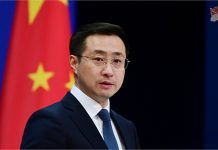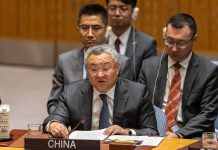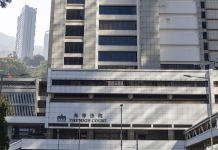BEIJING: “I know that many families in my village have two or three children, and I have never heard of anyone ‘being forcibly sterilized,’” Gulbostan Rozi said.
Gulbostan Rozi comes from Kashgar City in northwest China’s Xinjiang Uygur Autonomous Region. Talking about the lie that “Xinjiang has taken compulsory sterilized measures on Uygur women,” Rozi is quite angry.
“As a mother of three children, I cannot accept anti-China forces to smear Xinjiang,” she stressed.
Gulbostan Rozi said that she has been carefully taken care of by doctors since pregnancy. “I regularly went to the hospital for free pregnancy examinations and listen to the doctors’ advice. The government also provides free vaccinations and nutrition.”
Now, Gulbostan Rozi’s two daughters attend primary school and her son kindergarten free of charge.
Xinjiang prohibits illegal acts including late-stage induced labor, forced birth control and forced pregnancy tests. Whether to take contraceptive measures or not and how to adopt contraceptive are decided voluntarily by individuals, and no organization or individual can interfere, Elijan Anayat, spokesperson of Information Office of People’s Government of Xinjiang Uygur Autonomous Region, said at a press briefing in Beijing.
“There is no problem such as ‘forced sterilization,’” Elijan Anayat said.
After graduating from a vocational education and training center in Shanshan County, Turpan City, Halchihan Yusup is now the foreman of a hot pot restaurant.
She is active, enthusiastic and energetic in her work, but when talking about her old self, she says even her own child had been scared.
“In the past, I was influenced by religious extremism and had many misconceptions,” she said, adding that she believed ridiculous things such as medicine should be divided into “Muslim” or “not Muslim.”
“Before going to the vocational education and training center, once my daughter had a high fever of 39.5 degrees, and my husband was going to buy medicine. I disagreed, saying that the medicine was not ‘Muslim.’ I quarreled with my husband, and he ignored me for a long time.”
Talking about this, Elijan Yusup cried with remorse in the class, feeling sorry for her child. “The teacher comforted me and told me to take actions to redeem myself,” she said.
After graduation, her child said she changed and was no longer as afraid of her as before. Elijan Yusup also found a job in a restaurant with the skills she learned.
“In the future, I want to work hard to make money. I also want to own a restaurant, so that my family can live a better life,” she added.
Mijit Timit comes from Kuqa City in Aksu Prefecture. His family has 20 hectares of land, mainly used for planting cotton. – Agencies
“In the past few years, when my family was short of hands during the cotton-picking season, we would pay cotton pickers from Xinjiang and other regions to help. They can earn more than 10,000 yuan (1,536 U.S. dollars) in a little over two months, and everyone rushes to come,” he said.
“I heard some people abroad say that Xinjiang is forcing farmers to grow and pick cotton. This is nonsense! How can we call it forced labor if we grow on our own land, pick our own cotton and earn our own money?” He asked.
“Those who spread lies are not trying to protect our rights at all, but want to let farmers’ cotton rot in the fields. They want to make us have no work, no food and return to the poor old days. We will not allow it!” He stressed.
Cotton production in Xinjiang has long been highly mechanized, even in the busy picking season. There is no need for a large number of “cotton pickers,” said Xu Guixiang, deputy head of the Publicity Department of the Xinjiang Regional Committee of the Communist Party of China.
There has never been such a thing as compulsory cotton harvesting in Xinjiang, Xu said, adding that Xinjiang has made unprecedented achievements in social and economic development and that no forces will be allowed to use Xinjiang-related issues as an excuse to interfere in China’s internal affairs.






